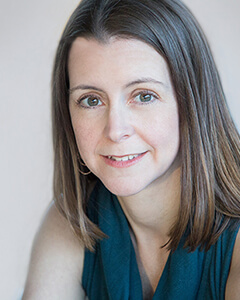FOCUS
Acceleration keeps students moving forward. How do we do it?
By Suzanne Bouffard
Categories: Collaboration, Equity, Learning designsJune 2023
When our team began planning this issue of The Learning Professional, we asked ourselves: What do we not yet know about unfinished learning due to the COVID-19 pandemic, and what do we need to know to move forward?
We wanted to go deeper than the well-documented fact that many students are behind where we would expect them to be, academically and socially, if the pandemic had not happened. We wanted to tackle, not simply lament, the trend that the pandemic’s impacts have been felt disproportionately by historically marginalized students, including students of color, students experiencing poverty, and students with special needs.
Like you, we wanted to know what to do now.
For several years now, education leaders have been proposing the concept of acceleration as a path forward. Unlike remediation, which research shows often results in vulnerable students falling even farther behind, acceleration approaches keep students moving forward while supporting them to fill in the gaps in knowledge and skills that are necessary for grade-level work.
It’s an intuitively appealing concept, and one that many educators are getting behind. But as we dug into the details of acceleration, we found that far fewer people have a clear understanding of how to do it.
We made it the goal of this issue to find out not just what acceleration is in concept, but what it is in practice, and what adults need to learn and do to make it work for students. We were fortunate to work with a stellar group of educators and authors who are at the leading edge of this work. In varied contexts and settings, they are demonstrating the possibility and benefits of acceleration, documenting their strategies, and reflecting on next steps.
There are many open questions about acceleration. But some things are clear. First, acceleration takes significant shifts in understanding and practice, shifts that can only occur with high-quality professional learning. This issue’s authors explain why and how they are investing in capacity building for educators, including coaching on providing just-in-time support to students, tools and structures to build knowledge about formative assessment, and instructional leadership team planning around acceleration.
Second, acceleration requires partnership and collaboration. Articles in this issue address the importance of vertical alignment of teaching practices across grade levels, intentional collaboration between school year and summer staff, and the nesting of state, district, and school support. This issue’s At a Glance graphic pulls it all together and depicts how the levels, people, and strategies need to connect.
We hope you will see this issue, as we do, as a valuable and unique resource for building educators’ capacity to implement acceleration approaches so that all students can do grade-level work and beyond. We hope you will also see it as an invitation — an invitation not only to deepen your own practice but to share your learning with us and the other members of the Learning Forward community. We all have a lot to learn about navigating the challenges students face today, and we’re just beginning to understand how professional learning can support the shifts we will need to continue making as we move forward. Reach out to us by email or social media to share your insights, questions, and stories so we can all share the challenges of learning and the pride of success.
Download pdf here.

Suzanne Bouffard is senior vice president of communications and publications at Learning Forward. She is the editor of The Learning Professional, Learning Forward’s flagship publication. She also contributes to the Learning Forward blog and webinars. With a background in child development, she has a passion for making research and best practices accessible to educators, policymakers, and families. She has written for many national publications including The New York Times and the Atlantic, and previously worked as a writer and researcher at the Harvard Graduate School of Education. She has a Ph.D. in developmental psychology from Duke University and a B.A. from Wesleyan University. She loves working with authors to help them develop their ideas and voices for publication.
Categories: Collaboration, Equity, Learning designs
Recent Issues
EVALUATING PROFESSIONAL LEARNING
February 2024
How do you know your professional learning is working? This issue digs...
TAKING THE NEXT STEP
December 2023
Professional learning can open up new roles and challenges and help...
REACHING ALL LEARNERS
October 2023
Both special education and general education teachers need support to help...
THE TIME DILEMMA
August 2023
Prioritizing professional learning time is an investment in educators and...











